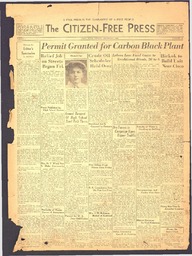
Writers can opt to use the feature solely for newsletters or they can add the option to their blog to cater to readers who want to receive new posts via email instead. First launched in December, Newsletter allows writers to automatically send out posts via email to connect directly with their audience, while still being able to leverage ’s other capabilities. Significant historical events, court cases and ideas that have shaped our current system of constitutional First Amendment jurisprudence, compiled by the Newseum Institute’s First Amendment is taking on Substack and others with today’s news that its Newsletter product will now support paid subscriptions and premium content. “Petition is the right to ask government at any level to right a wrong or correct a problem,” writes a First Amendment scholar in this overview detailing how the right of petition works in our government, and the forms it takes.Ī comprehensive research compilation covering all aspects of First Amendment law. This least-known First Amendment freedom is nevertheless crucial to our democratic republic’s form of government. Unless there is real danger of imminent harm, assembly rights must be respected.” As a First Amendment scholar says in this overview, “First Amendment freedoms ring hollow if government officials can repress expression that they fear will create a disturbance or offend. Our right to gather in peaceful public protest – in marches, rallies and other assemblies – is another core freedom guaranteed by the First Amendment. This First Amendment scholar’s overview makes clear the many aspects of our religious freedom, saying, “That bold constitutional experiment in granting religious freedom to all remains in place, and in progress, in the United States.” The First Amendment introduced bold new ideas to the world: that government must not impose a state religion on the public, or place undue restrictions on religious practice, but must recognize the right of the people to believe and worship, or not, as their conscience dictates.

In quotations from one court ruling, “‘reedom of expression upon public questions is secured by the First Amendment’” so that “‘debate on public issues should be uninhibited, robust and wide-open.’” How did freedom of the press come about? Are there restrictions on press freedom? The ways in which this core freedom has developed in law are explained in this overview by a First Amendment scholar. What does the First Amendment say about freedom of speech? Can speech be restricted, and if so, when? In this overview, a First Amendment scholar explains what sorts of speech are protected, where free expression may be limited, and why “reedom of speech is a core American belief, almost a kind of secular religious tenet, an article of constitutional faith.” Looking for a general overview? Here it is, from the First Amendment Encyclopedia. Written by Ken Paulson, director of the Free Speech Center Students have the right to pray in America’s public schools, as long as there’s no disruption to school operations and no government employees (teachers, coaches) are involved.The First Amendment prevents government from requiring you to say something you don't want to, or keeping you from hearing or reading the words of others (even if you never speak out yourself, you have the right to receive information).


There’s also no citizenship requirement for First Amendment protection. They are guaranteed to you the day you’re born. There’s no “legal age” you have to reach to exercise your First Amendment freedoms.Before agreeing to accept the Constitution, the Founders of our democratic republic demanded that these freedoms be protected by an amendment to the original document – the First Amendment.Together, these five guaranteed freedoms make the people of the United States of America the freest in the world. The five freedoms it protects: speech, religion, press, assembly, and the right to petition the government.“Congress shall make no law respecting an establishment of religion, or prohibiting the free exercise thereof or abridging the freedom of speech, or of the press or the right of the people peaceably to assemble, and to petition the Government for a redress of grievances.” – The First Amendment to the U.S.


 0 kommentar(er)
0 kommentar(er)
